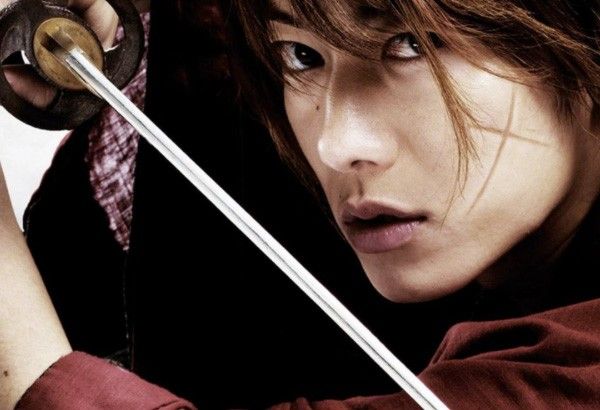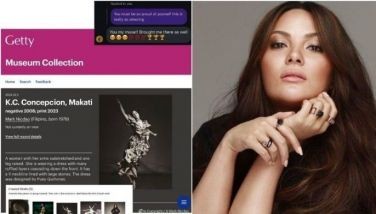'Rurouni Kenshin': Why end with 'The Beginning'

MANILA, Philippines — Keishi Otomo's adaptation of Nobuhiro Watsuki's famous manga is coming to an end soon.
On April 23, "Rurouni Kenshin: The Final" is set to premire.
Wanderer and samurai Kenshin Himura (Takeru Satoh) is visited by a ghost from his past, Enishi Yukishiro (Mackenyu), the white-haired nemesis who sought him out to avenge the death of his sister Tomoe (Kasumi Arimura). Manga fans know this as the famous Jinju arc.
Immediately following after, on June 4, "Rurouni Kenshin: The Beginning" will be released. It will tell the story of how Kenshin got the scar and his life before he met his friends that include Kaoru Kamiya (Emi Takei) and Sanosuke Sagara (Munetaka Aoki).
The last two films in the 10-year journey of "Rurouni Kenshin" is like seeing it coming into full circle, said Yosuke Eguchi. The actor plays the fictionalized version of Hajime Saito, the left-handed captain of the third unit of Shinsengumi (special police force during Japan's Bakumatsu period in the late 19th century).
In the films, he was initially shown as some sort of villain to Kenshin but later on found himself working alongside the scarred hero and his friends.
"I was very serious at the beginning and until the very end. It goes back to episode zero where I am Saito Hajime with the Shinsengumi. Everything's going full circle. It's almost like magic and I'm sure Keishi Otomo had meant it that way," said Eguchi.
Otomo also revealed that he has long planned to end the five-movie franchise with some sort of a beginning.
"The producers, Takeru and I were talking that we really need to do the beginning of the story. We've been talking about this. I felt the final goal was there, meaning, (we wanted to tackle questions like) why he has the cross scar on his cheek, what is in his heart. Unless we depict that, it would not end. So for us, we have to do that part," he explained, referring to the pronounced cross-shaped scar of Kenshin on his left cheek, and why he became a wanderer at the end of the Edo period going through Japan's transition to the Meiji Restoration era.
"But obviously if we have to do that, there's the story of Enishi. That's the both sides of the coin. So we really have to do both. Also, how does Kaoru feel about finding out about Tomoe. That's one side. And for Kenshin facing Enishi and the people around him, how do they feel? How does everybody feel about that? That's another part that I wanted to depict," Otomo added.
Throughout the franchise, Kenshin is battling against going back to the Battosai, the ruthless and deadly samurai feared by many. As Kenshin who resided in the Kamiya dojo and forging friendships, he lives as a simple person who carries with him a reverse-blade sword, an evidence of his promise not to kill anyone by his own hands and sword.
"As we looked at the both sides of the coin and we discussed heavily on their release, we thought it's wonderful to end at the beginning. There's a trick that you will find out (after watching) and I think that's a very beautiful ending of the series," Otomo said.
Thus, the series will end with "The Beginning" where people will finally know how he got the scar and what led to him leave his old life as the feared Battosai.
"Rurouni Kenshin: The Final" screens on April 23 while "Rurouni Kenshin: The Beginning" premieres on June 4.
RELATED: 'Rurouni Kenshin' Japanese cast raves over Filipinos at global fan meet
- Latest
- Trending


















 Exclusive
Exclusive










